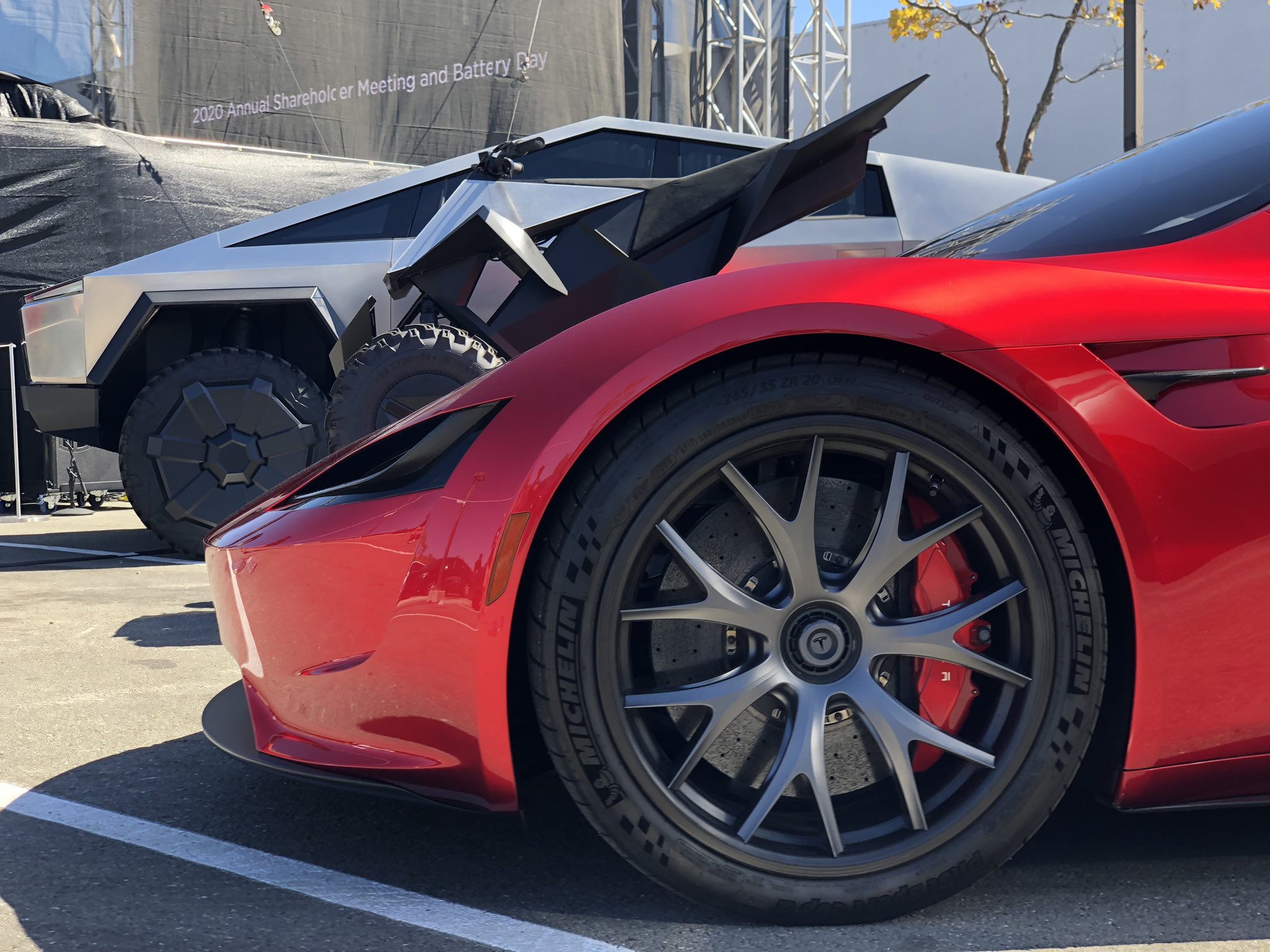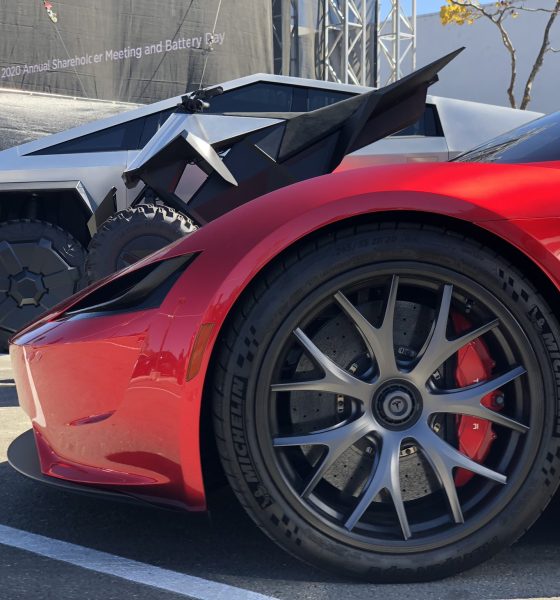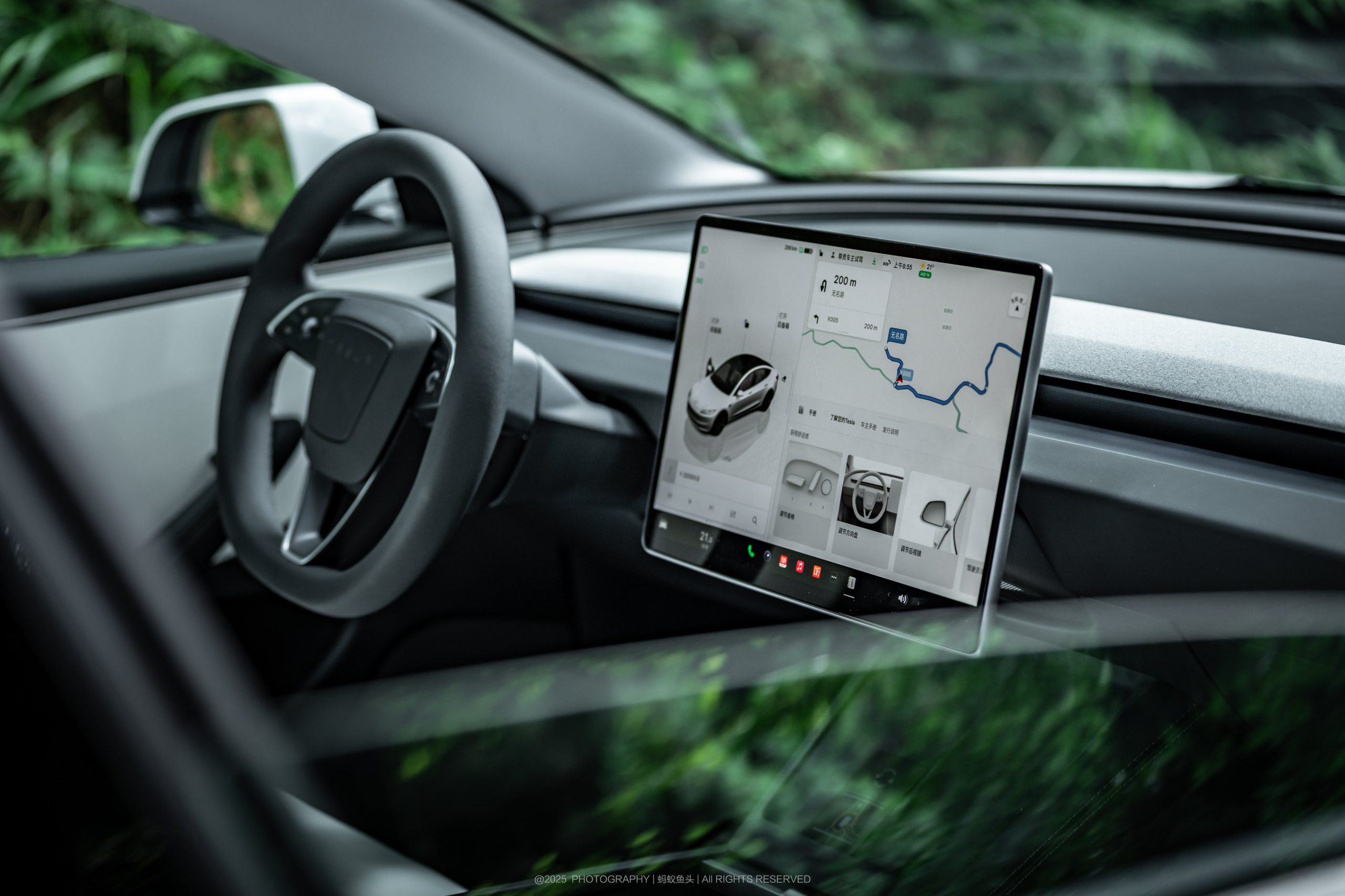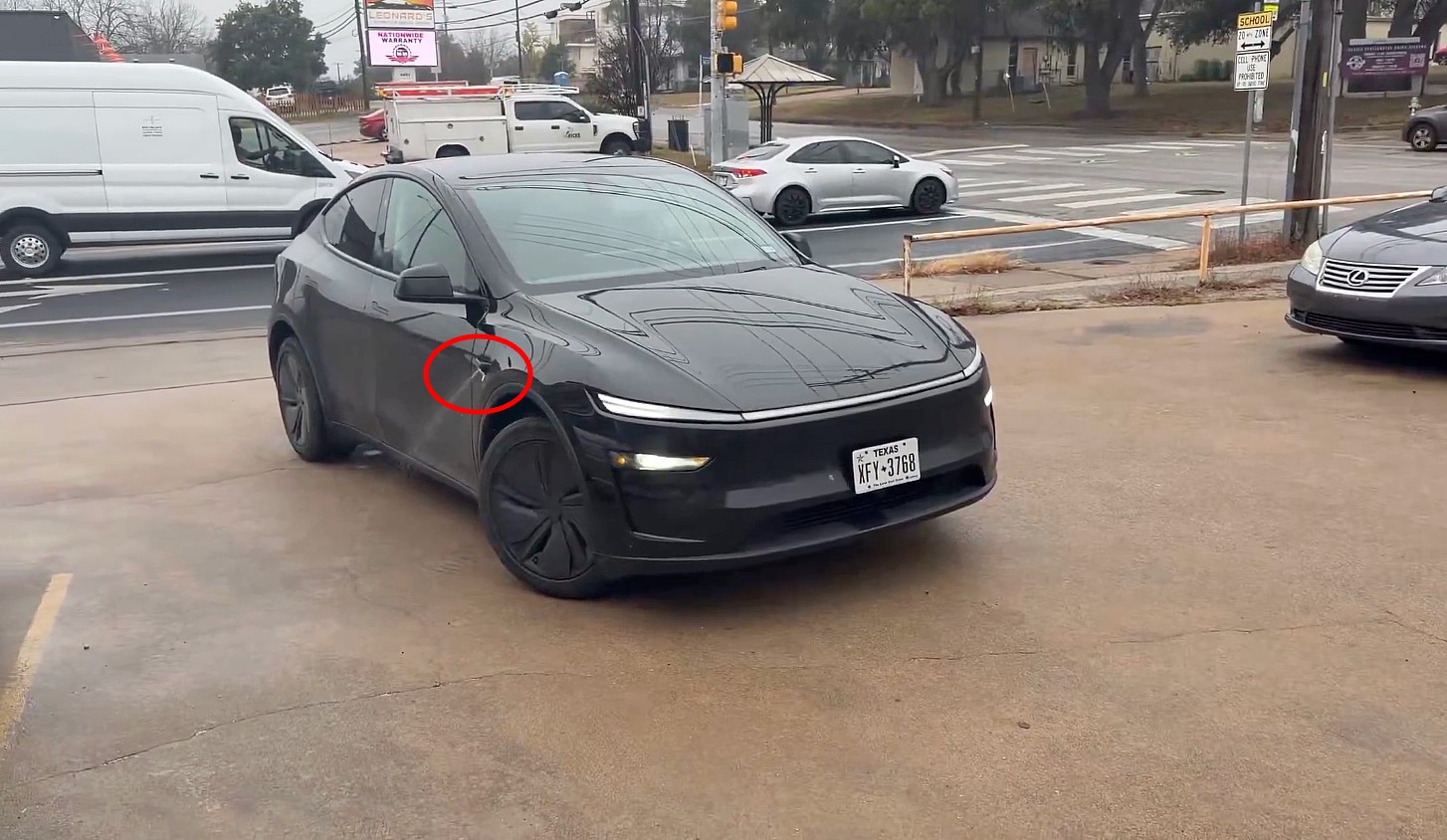

News
Tesla’s dominance is causing other companies to adopt a ‘fake it ’til we make it’ strategy
Tesla’s dominance in the automotive sector has proven to be one of the industry’s biggest surprises in its long and storied history. Because of the whirlwind of support that Tesla and its initiatives have received, along with the increasingly dominant numbers that the company displays quarterly, Tesla is undoubtedly the biggest influencer in the car industry today. After the company’s increasingly apparent dominance has been recognized by the long and storied auto manufacturers of the American vehicle market, a “fake it ’til we make it” strategy has been adopted by several of these entities, and it has not always worked out in the most favorable fashion.
Legacy automakers have spent over a hundred years dominating and influencing the look, design, and overall appeal of “the car.” Before 2008, electric cars were never a huge deal. They weren’t available for purchase, and many car buyers figured that buying Hybrid vehicles was enough for the environmental concerns to go away in the short-term. As a result, nobody, including some of the most seasoned and informed automotive executives, figured that for the foreseeable future, business would carry on as usual. People would continue buying gas-powered cars that fit their bill of needs and their finances, and that would be that. People would accept the constantly-rising gas prices and continue to drive cars that were manufactured by companies that have been in business for decades, simply because they’re trustworthy, and that is what was most ideal.
And, who could blame them? In 2007, nobody truly thought that EVs would be a major player in the automotive market within 5-10 years. Nobody knew that a little-known entrepreneur from South Africa had a plan to disrupt the automotive industry as a whole. Nobody knew that eventually, gas-powered cars would be exposed as inferior to battery-powered vehicles because nobody had figured out the innovation.
In reality, when the tech bubble began to burst, it was only a matter of time before cars became less of a transportation means and more of a software device. Tesla really drove this point into fruition with its electric cars, especially when software updates and Over-the-Air upgrades became available to owners. But while Tesla continues to uncover the secrets behind the disruption of the automotive sector, it continues to extend its lead in the development of electric cars. The lead has gotten to a point where car companies are coming up with ways to “fake it until they make it,” and it has cost some of the most notable names in the industry, and some up-and-comers, their spot as potential forces in EV production.
The most notable is Nikola, who was exposed in September 2020 by Hindenburg Research. Earlier this morning, General Motors, who had announced a partnership with Nikola on September 8th, completely scrapped any partnership involving EVs and noted that their jointed effort would only deal with hydrogen fuel-cell vehicles. This ultimately led to Nikola announcing that its all-electric truck, the Badger, had no timetable for completion. Ultimately, the faking strategy paid dividends in the short term, as Nikola had gained some momentum on Wall Street before the Hindenburg report was released. Now, the company has been exposed, and GM bailed out of a multi-billion dollar partnership that would have established Nikola as a player in the EV pickup game.
Other automakers who have promised to initiative efforts to transition to BEV development and production are out there. Ford, GM, and Volkswagen have all worked toward establishing electric vehicle production lines in an effort to move away from petrol-powered engines. However, only time will tell if these companies remain serious about their efforts. While Volkswagen has been extremely vocal about its support for electrification, Ford has also outlined plans to begin battery cell manufacturing efforts, and GM has plans to expand its line of electric cars with the upcoming Hummer EV.
Ultimately, nobody likes to be lagging behind, and the car companies that have long dominated the automotive sector are more than likely not used to being second-fiddle, especially to a company that has only built cars for twelve years. The lesson in the development of EVs is that adopting the technologies must be done efficiently. There is no room for dragging feet. There is no time to delay the efforts. These companies must adopt the realization that EVs are the future of the auto sector. Without a plan in place, Tesla’s lead will continue to widen, and the long-standing American car companies will be, for the first time ever, left in the dust.

Elon Musk
Tesla to increase Full Self-Driving subscription price: here’s when

Tesla will increase its Full Self-Driving subscription price, meaning it will eventually be more than the current $99 per month price tag it has right now.
Already stating that the ability to purchase the suite outright will be removed, Tesla CEO Elon Musk said earlier this week that the Full Self-Driving subscription price would increase when its capabilities improve:
“I should also mention that the $99/month for supervised FSD will rise as FSD’s capabilities improve. The massive value jump is when you can be on your phone or sleeping for the entire ride (unsupervised FSD).”
This was an expected change, especially as Tesla has been hinting for some time that it is approaching a feature-complete version of Full Self-Driving that will no longer require driver supervision. However, with the increase, some are concerned that they may be priced out.
$99 per month is already a tough ask for some. While Full Self-Driving is definitely worth it just due to the capabilities, not every driver is ready to add potentially 50 percent to their car payment each month to have it.
While Tesla has not revealed any target price for FSD, it does seem that it will go up to at least $150.
I should also mention that the $99/month for supervised FSD will rise as FSD’s capabilities improve.
The massive value jump is when you can be on your phone or sleeping for the entire ride (unsupervised FSD). https://t.co/YDKhXN3aaG
— Elon Musk (@elonmusk) January 23, 2026
Additionally, the ability to purchase the suite outright is also being eliminated on February 14, which gives owners another reason to be slightly concerned about whether they will be able to afford to continue paying for Full Self-Driving in any capacity.
Some owners have requested a tiered program, which would allow people to pay for the capabilities they want at a discounted price.
Unsupervised FSD would be the most expensive, and although the company started removing Autopilot from some vehicles, it seems a Supervised FSD suite would still attract people to pay between $49 and $99 per month, as it is very useful.
Tesla will likely release pricing for the Unsupervised suite when it is available, but price increases could still come to the Supervised version as things improve.
This is not the first time Musk has hinted that the price would change with capability improvements, either. He’s been saying it for some time. In 2020, he even said the value of FSD would “probably be somewhere in excess of $100,000.”
The FSD price will continue to rise as the software gets closer to full self-driving capability with regulatory approval. It that point, the value of FSD is probably somewhere in excess of $100,000.
— Elon Musk (@elonmusk) May 18, 2020
News
Tesla starts removing outright Full Self-Driving purchase option at time of order

Tesla has chosen to axe the ability to purchase Full Self-Driving outright from a select group of cars just days after CEO Elon Musk announced the company had plans to eliminate that option in February.
The company is making a clear-cut stand that it will fully transition away from the ability to purchase the Full Self-Driving suite outright, a move that has brought differing opinions throughout the Tesla community.
Earlier this week, the company also announced that it will no longer allow buyers to purchase Full Self-Driving outright when ordering a pre-owned vehicle from inventory. Instead, that will be available for $99 per month, the same price that it costs for everyone else.
The ability to buy the suite for $8,000 for a one-time fee at the time of order has been removed:
NEWS: Tesla no longer allows buyers to purchase FSD outright in the U.S. when ordering a pre-owned vehicle directly from inventory. Tesla now gives you the option to either subscribe for $99/month, or purchase FSD outright after taking delivery (available until February 14th). pic.twitter.com/1xZ0BVG4JB
— Sawyer Merritt (@SawyerMerritt) January 23, 2026
This is a major move because it is the first time Tesla is eliminating the ability to purchase FSD outright for one flat fee to any of its vehicles, at least at the time of purchase.
It is trying to phase out the outright purchase option as much as it can, preparing people for the subscription-based service it will exclusively offer starting on February 14.
In less than a month, it won’t be available on any vehicle, which has truly driven some serious conversation from Tesla owners throughout the community.
There’s a conflict, because many believe that they will now lose the ability to buy FSD and not pay for it monthly, which is an attractive offer. However, others believe, despite paying $8,000 for FSD, that they will have to pay more money on top of that cost to get the unsupervised suite.
Additionally, CEO Elon Musk said that the FSD suite’s subscription price would increase over time as capabilities increase, which is understandable, but is also quite a conflict for those who spent thousands to have what was once promised to them, and now they may have to pay even more money.
News
Tesla Robotaxi has a highly-requested hardware feature not available on typical Model Ys
These camera washers are crucial for keeping the operation going, as they are the sole way Teslas operate autonomously. The cameras act as eyes for the car to drive, recognize speed limit and traffic signs, and travel safely.

Tesla Robotaxi has a highly-requested hardware feature that is not available on typical Model Ys that people like you and me bring home after we buy them. The feature is something that many have been wanting for years, especially after the company adopted a vision-only approach to self-driving.
After Tesla launched driverless Robotaxi rides to the public earlier this week in Austin, people have been traveling to the Lone Star State in an effort to hopefully snag a ride from one of the few vehicles in the fleet that are now no longer required to have Safety Monitors present.
BREAKING: Tesla launches public Robotaxi rides in Austin with no Safety Monitor
Although only a few of those completely driverless rides are available, there have been some new things seen on these cars that are additions from regular Model Ys, including the presence of one new feature: camera washers.
With the Model Y, there has been a front camera washer, but the other exterior “eyes” have been void of any solution for this. For now, owners are required to clean them manually.
In Austin, Tesla is doing things differently. It is now utilizing camera washers on the side repeater and rear bumper cameras, which will keep the cameras clean and keep operation as smooth and as uninterrupted as possible:
🚨 Tesla looks to have installed Camera Washers on the side repeater cameras on Robotaxis in Austin
pic.twitter.com/xemRtDtlRR— TESLARATI (@Teslarati) January 23, 2026
Rear Camera Washer on Tesla Robotaxi pic.twitter.com/P9hgGStHmV
— TESLARATI (@Teslarati) January 24, 2026
These camera washers are crucial for keeping the operation going, as they are the sole way Teslas operate autonomously. The cameras act as eyes for the car to drive, recognize speed limit and traffic signs, and travel safely.
This is the first time we are seeing them, so it seems as if Safety Monitors might have been responsible for keeping the lenses clean and unobstructed previously.
However, as Tesla transitions to a fully autonomous self-driving suite and Robotaxi expands to more vehicles in the Robotaxi fleet, it needed to find a way to clean the cameras without any manual intervention, at least for a short period, until they can return for interior and exterior washing.









